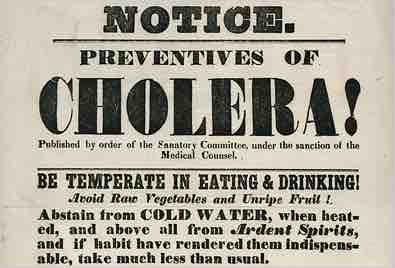The Industrial Revolution brought enormous advances in productivity, but with steep environmental costs. During the Industrial Revolution, environmental pollution in the United States increased with the emergence of new sources of fuel, large factories, and sprawling urban centers.
Fossil Fuels
Fossil fuels powered the Industrial Revolution. In 1790, anthracite coal was first discovered in what is now known as the Coal Region of Pennsylvania. A harder and high-quality form of coal, anthracite soon became the primary source of fuel in the United States for domestic and industrial use. It fueled factory furnaces, steam-powered boats, and machinery. The consumption of immense quantities of coal and other fossil fuels eventually gave rise to unprecedented air pollution. In 1881, Chicago and Cincinnati were the first two American cities to enact laws to promote cleaner air.

Anthracite coal breaker and power house buildings, New Mexico, ca. 1935
Coal tends to release large quantities of carbon as it is burned to make electricity.
Modern Cities and Sanitation
The environmental effects of industrialization were especially concentrated in cities. Unsanitary conditions and overcrowding afflicted many American cities, where outbreaks of disease, including cholera and typhoid, were common. Untreated human waste was a major environmental hazard as rapidly growing cities lacked sewer systems and relied on contaminated wells within city confines for drinking water supplies. In the mid-nineteenth century, after the link between contaminated water and disease was established, many cities built centralized water-supply systems. However, waste water continued to be discharged without treatment, due to public health officials' confidence in the self-purifying capacity of rivers, lakes, and the sea.

Hand bill from the New York City Board of Health, 1832
The cholera outbreak of 1832 was related to overcrowding and unsanitary conditions that attended the Industrial Revolution.
Early Environmentalism
In the early nineteenth century, policymakers and the public had little awareness of the extent of industry's impact on the environment. Some effects were self-evident to attentive observers, however, and the rise of industrialization and urbanization did inspire a new appreciation for the natural world among some. Transcendentalism, an intellectual movement of the 1830s and 1840s, elevated nature in popular poems, stories, and essays of the time. Transcendentalist author Henry David Thoreau is best known for his work Walden, a reflection upon simple living in natural surroundings. Thoreau also wrote on the subjects of natural history and philosophy and anticipated the methods and findings of ecology and environmental history, two sources of modern day environmentalism.

Henry David Thoreau, 1856
Thoreau's writings celebrated nature and a simple life and provided a critique of urban and industrial values.